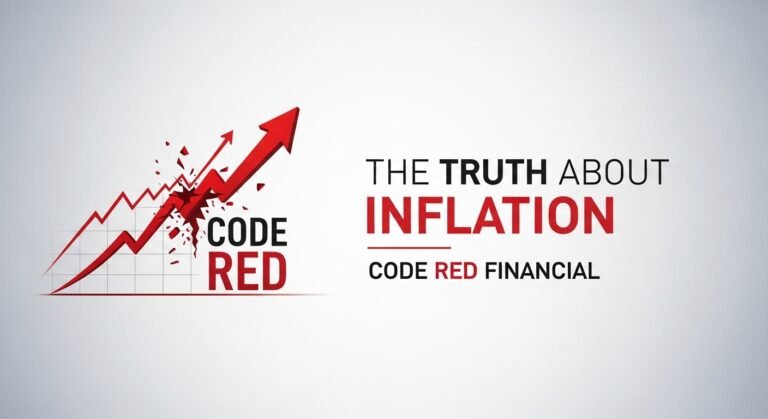Understanding the Basics of Credit Scores
A credit score is a numerical representation of an individual’s creditworthiness, which lenders use to gauge the risk of extending credit or lending money. The score is primarily calculated based on credit reports, which contain detailed information about one’s credit history. Two main types of credit scores widely recognized are FICO and Vantage Score. These scores range from 300 to 850, with higher scores indicating better creditworthiness. Generally, scores are categorized as poor (300-579), fair (580-669), good (670-739), very good (740-799), and excellent (800-850).
The calculation of credit scores involves several key factors. The most significant among these is payment history, which accounts for 35% of the FICO score. Consistently making on-time payments boosts your score, while late payments can have a detrimental effect. Credit utilization, or the ratio of your current credit balances to your total available credit, makes up 30% of the score. Keeping this ratio below 30% is advisable to maintain a healthy score.
Length of credit history contributes to 15% of the score. A longer credit history generally indicates reliability, positively affecting the score. New credit, which involves the number of recently opened accounts and inquiries, accounts for 10% of the score. Frequent applications for new credit can signal financial distress and may lower your score. Lastly, credit mix, which includes the variety of credit accounts such as credit cards, mortgages, and auto loans, comprises 10% of the score. A balanced mix of credit types can enhance your credit profile.
Credit scores profoundly impact financial opportunities. A higher score can lead to easier loan approvals, lower interest rates, and more favorable credit terms. Conversely, a lower score can result in higher interest rates and may even hinder loan approvals. Beyond loans, credit scores can influence rental agreements, insurance premiums, and even job prospects, as some employers review credit reports as part of their hiring process.
Common Credit Score Myths Debunked
Understanding how to effectively manage and improve one’s credit score is often clouded by widespread misconceptions. One prevalent myth is the belief that checking your own credit score will lower it. In reality, this is false. Checking your credit score through a soft inquiry, such as when you review your own credit report, does not negatively impact your score. Only hard inquiries, like those made by lenders during the approval process for credit, can potentially affect your score.
Another common myth is the notion that closing old credit accounts will boost your credit score. On the contrary, closing old accounts can actually harm your score. This action reduces your available credit and shortens your credit history, both of which are important factors in credit score calculations. Maintaining a long history of responsible credit use is beneficial to your score.
It is also often mistakenly believed that carrying a balance on your credit cards will improve your credit score. While using credit cards responsibly is important, carrying a balance, especially a high one, can hurt your score. High credit utilization rates can signal to lenders that you are over-reliant on credit, thus posing a higher risk. Paying off your balances in full each month is a more effective strategy for maintaining a healthy credit score.
Furthermore, many people think that their income level directly affects their credit score. Surprisingly, your income does not factor into your credit score calculation. Credit scores are determined by credit utilization, payment history, length of credit history, types of credit used, and recent credit inquiries, not by how much money you earn.
By separating fact from fiction, individuals can make more informed decisions that are conducive to improving their credit health. Understanding the true factors that influence credit scores allows for more strategic financial planning and better overall financial well-being.
Effective Strategies to Quickly Boost Your Credit Score
Improving your credit score rapidly requires a combination of strategic actions and diligent monitoring. Here are some effective strategies you can implement to see noticeable improvements in your credit score in a short period:
Pay Down High Balances: One of the quickest ways to boost your credit score is by reducing your credit utilization ratio. Aim to pay down high balances on your credit cards, ideally keeping your utilization below 30%. This demonstrates responsible credit management and can positively impact your score.
Dispute Inaccuracies on Credit Reports: Regularly check your credit reports for any errors or inaccuracies. Disputing incorrect information, such as outdated addresses or erroneous account statuses, can result in immediate score improvements once rectified. Make sure to document and follow up on disputes until they are resolved.
Become an Authorized User: If you have a trusted friend or family member with a strong credit history, consider becoming an authorized user on their account. This can add positive payment history to your credit report, thereby boosting your score. Ensure the primary account holder maintains good credit practices to benefit from this strategy.
Ensure Timely Bill Payments: Consistently paying your bills on time is crucial for improving your credit score. Set up automatic payments or reminders to avoid missing due dates. Even a single late payment can significantly impact your score, so prioritize punctuality in bill management.
By integrating these strategies into your financial routine, you can achieve a healthier credit score swiftly. Remember, consistency and careful monitoring are key. Regularly review your credit reports and stay informed about your credit status to maintain and continue improving your score over time.
Long-Term Habits for Sustained Credit Health
While quick fixes can provide immediate boosts to your credit score, achieving long-term financial health necessitates the adoption of sustainable habits. One of the most crucial habits is maintaining low credit utilization. Credit utilization ratio, which compares your credit card balances to your credit limit, is a significant factor in your credit score. Aim to keep your credit utilization below 30%, as this indicates responsible credit management and can positively impact your score over time.
Regularly reviewing your credit reports for errors is another key habit. Mistakes on your credit report can unfairly lower your score, so it’s essential to check for inaccuracies and dispute any errors promptly. Access your credit reports from the three major credit bureaus—Equifax, Experian, and TransUnion—at least once a year. This vigilance not only helps correct potential errors but also keeps you informed about your credit status.
Diversifying your credit types can also bolster your credit score. Having a mix of credit accounts, such as credit cards, retail accounts, installment loans, and mortgage loans, demonstrates your ability to manage different types of credit. However, it is important to avoid opening too many new accounts in a short period, as this can lead to unnecessary hard inquiries and potentially lower your score.
Building a history of responsible credit use is fundamental. Consistently making on-time payments, keeping balances low, and avoiding maxing out credit cards showcase your reliability to lenders. Avoiding unnecessary hard inquiries, such as those from applications for new credit, can help maintain your score. Each hard inquiry can slightly lower your score, especially if you accumulate several over a short timeframe.
Lastly, continuous education about personal finance is vital. Staying informed about the factors that influence your credit score, understanding how to manage debt effectively, and learning about new financial tools and resources can empower you to make better financial decisions. Long-term commitment to these habits is crucial for sustaining a healthy credit score and improving the overall health and well-being of your financial life.
The Role of Professional Help and Credit Counseling
Managing or improving a credit score can sometimes be a complex endeavor, necessitating the intervention of professionals. Various types of professional help are available, such as credit counseling services, financial advisors, and credit repair companies, each offering unique benefits and potential drawbacks.
Credit counseling services are typically non-profit organizations dedicated to helping individuals develop effective budgeting plans and manage debt more efficiently. They can offer educational resources and personalized guidance, often at a minimal cost. These services can be particularly beneficial for those struggling to understand their financial situations or facing overwhelming debt. However, the primary limitation of credit counseling is that it may not provide immediate credit score improvements, as it focuses on long-term financial health.
Financial advisors, on the other hand, offer a broader spectrum of services, including investment advice, retirement planning, and comprehensive financial planning. Engaging a financial advisor can provide a holistic view of your finances, aiding in the identification of factors that may be negatively impacting your credit score. The downside is that financial advisors often charge higher fees, which may not be feasible for everyone.
Credit repair companies specialize in identifying and disputing errors on credit reports. They can be effective in quickly addressing inaccuracies that may be dragging down your credit score. Nevertheless, it’s important to exercise caution when selecting a credit repair company, as the industry has its share of fraudulent entities. The potential for high costs and the possibility of no guaranteed results are significant considerations.
When choosing professional services, it is crucial to conduct thorough research. Look for organizations with positive reviews, accreditation from reputable bodies such as the National Foundation for Credit Counseling (NFCC), and transparent fee structures. Be wary of any service that promises instant results or demands upfront payments.
Professional credit counseling and repair processes typically involve an initial assessment of your financial situation, followed by tailored advice or actions aimed at improving your credit health. While these services can offer substantial benefits, it is essential to balance the potential costs and outcomes before deciding to seek professional help.
The Broader Impact of Good Credit on Financial Well-Being
A strong credit score extends far beyond the realm of borrowing money; it serves as a cornerstone for comprehensive financial well-being. One of the most immediate benefits of a high credit score is the access to better financial opportunities. Lower interest rates on loans and credit cards are among the most notable advantages. When lenders view you as a low-risk borrower, they are more willing to offer favorable terms, which can save you thousands of dollars over the lifespan of a loan.
Another significant benefit is the increased likelihood of rental approvals. Landlords frequently use credit scores as part of their tenant screening process. A higher credit score can make you a more attractive candidate, thereby increasing your chances of securing a rental property. This is particularly important in competitive housing markets where multiple applicants vie for the same rental units.
Moreover, a good credit score can lead to lower insurance premiums. Insurance companies often consider credit scores when determining the risk profile of an applicant. A higher score suggests financial responsibility, potentially translating to reduced insurance costs for everything from auto to home insurance. This can result in substantial annual savings, further contributing to your financial health.
The peace of mind and financial security that come with a good credit score cannot be overstated. Knowing that you have access to better financial products and services provides a level of assurance that can greatly reduce financial stress. This, in turn, allows you to focus on other critical aspects of your financial strategy, such as saving for retirement, investing, or even pursuing entrepreneurial ventures.
Ultimately, maintaining a good credit score should be viewed as an integral part of your overall financial strategy. It’s not merely about borrowing money but about achieving long-term stability and success. By prioritizing credit score management, you lay the groundwork for a more secure and prosperous financial future.







